In February 2020, 65 Black male educators assembled on the campus of Clayton State University just outside Atlanta for a day of community building. They workshopped, encouraged each other and shared experiences from their respective classrooms.
The men high-fived, hugged, laughed heartily and expressed gratitude during workshopping sessions. It was in those moments that they were free of the white gaze and filled with joy. When Black male educators gather, they receive what they crave in their school communities: a safe space to revel in joyfulness despite the way the world views Black men and the expectations placed on them. This full breadth of Black men’s humanity, which includes joy, often goes unrecognized or is undervalued.
The Atlanta event, BMEsTalk LIVE, is a culmination of online engagement in weekly Twitter chats and at social gatherings. Organized by education consultant and former teacher Ayodele Harrison, it is a way to give this small segment of the nation’s educators a chance to bond and grow professionally. The day focuses on personal and professional success analysis, mentorship, pedagogical techniques and school community empowerment.
Attendees assert that the meeting counters the daily isolation many of them feel at school.
That’s because Black male educators make up only about 2% of all public school teachers in the United States. Recruiting and retaining Black male educators has been a struggle for schools. In addition to isolation, the “invisible tax”—the expectation that educators of color handle issues around cultural competency, discipline and relationship-building with students of color—makes it more difficult for them to thrive. This pervasive charge means that Black educators are left with less support or end up “typecast” into non-academic roles.
Just as society doesn’t see Black men’s full humanity, the education community also doesn’t see Black male educators as multi-dimensional beings with skills vital to nurturing young minds. The fact that these men must find healing, learning and joy in platforms outside of their schools acknowledges the tokenization and pigeonholing they face. These phenomena result from existing white supremacist structures prevalent in schools, making it more difficult for students and teachers of color to flourish.
According to a 2016 Education Trust report, Through Our Eyes: Perspectives and Reflections From Black Teachers, Black educators “face racial discrimination and stereotyping that leave them feeling alienated and restricted from participating in the school community, impacting their ability to be effective and ultimately their desire to remain in the profession.”
BMEsTalk spaces help Black male educators feel part of a community. They feel valued. They feel seen.
“I don’t think I’ve ever been in a space that was specifically focused on Black male educators and engaging with each other, sharing the successes, the challenges and the opportunities,” one attendee says in a BMEsTalk LIVE recap video.
This community building—and its subsequent joy—is essential work, the men say. It’s necessary to stay motivated, a feat that can become difficult for those who are thrust into disciplinarian roles or feel tokenized and burned out.
BMEsTalk isn’t the only group of Black male educators doing this work. There are numerous organizations and alliances across the country creating spaces to celebrate and uplift these educators while helping to broaden their members’ career opportunities.
But it’s not enough to acknowledge the need for Black male educators to have a safe space for professional development or celebration. School communities must reconsider how they perceive Black men’s roles in education. They should act more intentionally so that Black male educators feel included in students’ learning. Colleagues need to respect their skills and abilities and see them more fully.
In Their Shoes
Now in his second year of teaching, Eric Parker can’t imagine himself doing anything else. When he decided to become a social studies teacher, he remembered that he’d never had a teacher who looked like him or had similar life experiences. He was going to be that for future students. Today, he teaches middle school students who reflect a very racially diverse part of northern Oklahoma City, including students from immigrant families spanning from Central America and Africa to Asia and Europe.
One of the youngest teachers at his school, Parker is empathetic, committed to social justice education and eager to learn new pedagogical techniques. But he admits some colleagues look beyond that and instead assume he’s there for one reason.
“The first thing I got from a lot of my colleagues was, ‘What do you coach?’... So, it gets annoying, just those little microaggressions like that. They’re saying, ‘Oh, you coach?’ I’m saying, ‘No. I just do this.’ And they’re just like, ‘But you want to coach something.’ I’m like, ‘At the moment, no. That’s not what I’m focused on. Let’s talk about what I’m doing in my room rather than any other stuff.’”
Black male educators are often seen as their schools’ “managers of behavioral misconduct” by default. While they assert that they can effectively manage their classrooms, they note that all teachers should commit to doing the same. It shouldn’t be their burden to manage multiple classrooms.
“As Black male educators, we use our knowledge, expertise and experience to improve school culture, climate and equity in our school communities, which extends far beyond regulating student behavior,” Harrison explains.
LaMar Timmons-Long, an English teacher in Brooklyn, concurs: “It is a piece of the profession that needs to be amplified. We’re only looked at from one lens. ... We’re the ones who are stern and firm. We bring that to that space and [are] not looked at as something else.”
Timmons-Long also couldn’t imagine being anything other than a teacher. He dreamed of that opportunity in the fifth grade.
“I had really good teachers,” he says. “I thought, ‘If I can feel this happy as a student, then I’d probably be happy as a teacher.’”
But being a youthful Black male educator who is passionate about social justice education has earned him some labels he doesn’t necessarily appreciate.
“I think I’m seen as a rebel,” he says. “I don’t feel that, but people have told me that.” He adds, “You may see my passion as angry. ... I’m just speaking my truth.”
Beyond being pigeonholed into disciplinarian and coaching roles, some Black male educators also feel they must prove themselves to colleagues or administrators.
Parker says some coworkers aren’t confident in his content knowledge. He feels supported by colleagues in his social studies department but not by others.
“I keep having to prove myself, especially to some of our newer teachers that haven’t spent time with me, that I know my content matters,” he says. “I research these things, learn more every day about what I teach because I’m constantly challenged.”
In Parker’s case, the scrutiny comes from coworkers and caregivers. He has submitted primary sources to some caregivers when challenged about his content knowledge.
He’s felt the sting of the generations-old view that Black people must work twice as hard in their workplace.
Seeing other people just expressing the same feelings and having that open, safe space to talk about your thoughts, your dreams, desires and things like that—it’s been really nice.
— Eric Parker
Resisting With Joy, Support and Community
In 2018, the hashtags #Blackboyjoy, #Blackmenjoy and #Blackmensmiling began to trend on social media platforms. The messages and the images of men laughing, embracing and frolicking served as a reminder to imagine Black men beyond media stereotypes that portray them as stoic and hardened. It was also aspirational. It was liberating for Black men to unapologetically tap into joy despite the many ways society attempts to rob them of their dignity. Whether in their neighborhoods or as professionals in classrooms, Black men must continuously fight for their dignity.
Establishing connectedness through platforms like BMEsTalk is part of that fight.
“Seeing other people just expressing the same feelings and having that open, safe space to talk about your thoughts, your dreams, desires and things like that—it’s been really nice,” says Parker, who has participated in BMEsTalk chats. “When it boils down to it, our jobs aren’t easy. Whether it’s battling curriculum, battling colleagues or dealing with the things that our students have to deal with, you always need that time to just recharge yourself. That’s what it feels like it is: It’s like a recharge, a needed quick moment, a breath of fresh air, then back to work.”
Black male educators uplifting and celebrating one another in communal spaces is also a way to resist a white supremacist culture that shows up in school communities.
“What we experience as a Black man and as an educator can be difficult and tough, so we have to stand on the backs of each other in order to support each other, whether it is emotionally, mentally, pedagogically,” Timmons-Long says. “There’s like an automatic brotherhood that happens when we teach together, especially when we are on the same page of equity for students of color.”
But the BMEsTalk gatherings don’t always focus on discrimination, inequity or microaggressions. Connecting with other Black male educators reminds Parker to be mindful of self-care.
“It can be a little taxing when everything you talk about is something negative or an issue,” Parker says. “[A topic] usually opens up with something like, ‘Tell me a story about something funny, or a time when you did this or a time you did that.’ Not everything has to be bad. That’s a lesson I’ve had to figure out throughout my life: that anger’s taxing. Especially when you’re aware of things, you always have to set that time aside to relax and enjoy something.”
Organizations that cater to Black male educators also provide support through mentoring programs, recruiting initiatives, leadership trainings and annual conferences. All efforts are intended to help these men thrive—not just survive—in their careers and at their respective schools. It helps that they know they’re not alone.
Timmons-Long says he didn’t have a Black male educator as a colleague until three years into his profession.
“He took me under his wings like a little brother,” he recounts of that colleague. “When we became close and we started to support each other as teachers and Black men, it was pure Black boy joy. ... Our experiences are similar yet different, and we are always learning from each other. There’s nothing like the power and love of Black male educators supporting each other.”
The Future of Black Male Educators
Studies about Black male educators support the same conclusion: Schools need more of them in classrooms because all students, particularly students of color, benefit from having Black male educators in school. Their presence means lower dropout rates, fewer disciplinary actions and improved test performances.
This is why there have been concerted efforts in cities such as New York City, New Orleans, St. Louis and Indianapolis to attract more Black male educators. But Black male educators say these initiatives must be for the right reasons.
Through Ayodele Harrison’s consulting work, he often fields questions from school administrators who want to know how to recruit more Black male educators.
“Just tell me how you support and celebrate the current ones in your schools,” he tells administrators. “If you don’t have an answer to that, it’s going to be a huge uphill climb to get Black male educators to come. How can we create schools that are welcoming of Black male educators, that will support them, allow them to be who they are to be and not only disciplinarians?”
Harrison says white educators must first be mindful of how they contribute to an environment that hinders Black male educators’ professional growth.
“All educators, particularly white educators, should do an investigation of their own identity and understand the way they show up,” Harrison says. “Because, honestly, that’s where the work is, right? It really is about going internally and looking at, ‘Well, what is it that I need to do to be a better educator, to be a better colleague, to be a better contributor to this community so that it’s welcoming to all?’”
Black male educators say it all comes back to wanting to be themselves and be respected for their skills. School administrators and colleagues, they say, must trust that their presence in the classroom is integral rather than ancillary. While finding connection in safe spaces brings Black male educators joy, they need to feel that same happiness at work.
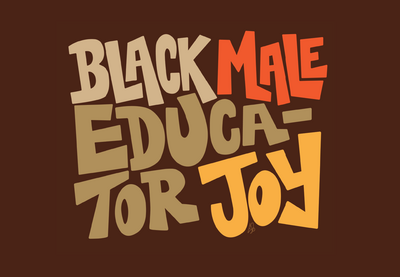
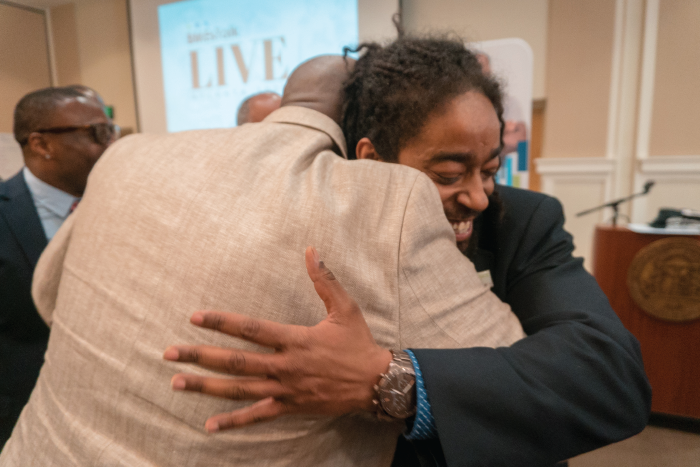
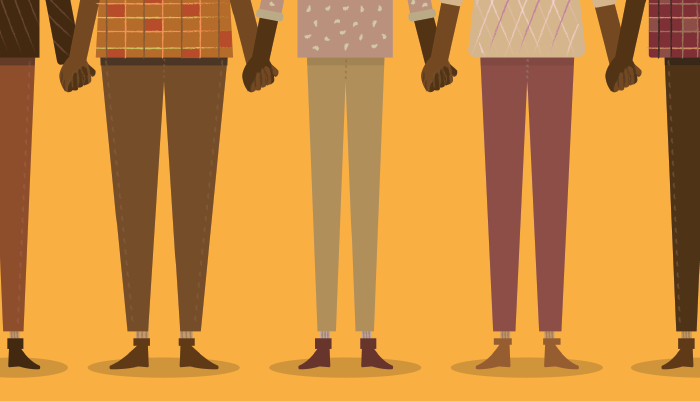
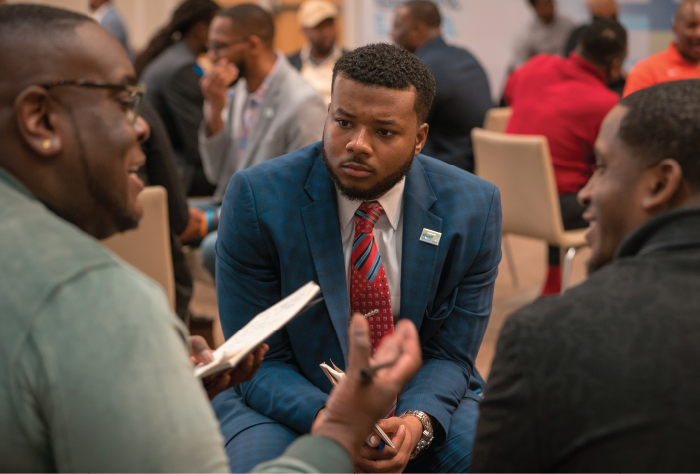
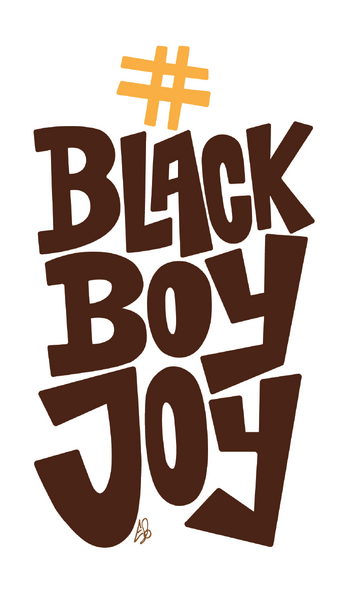
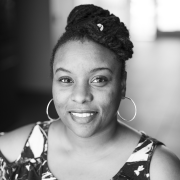

1 COMMENTS